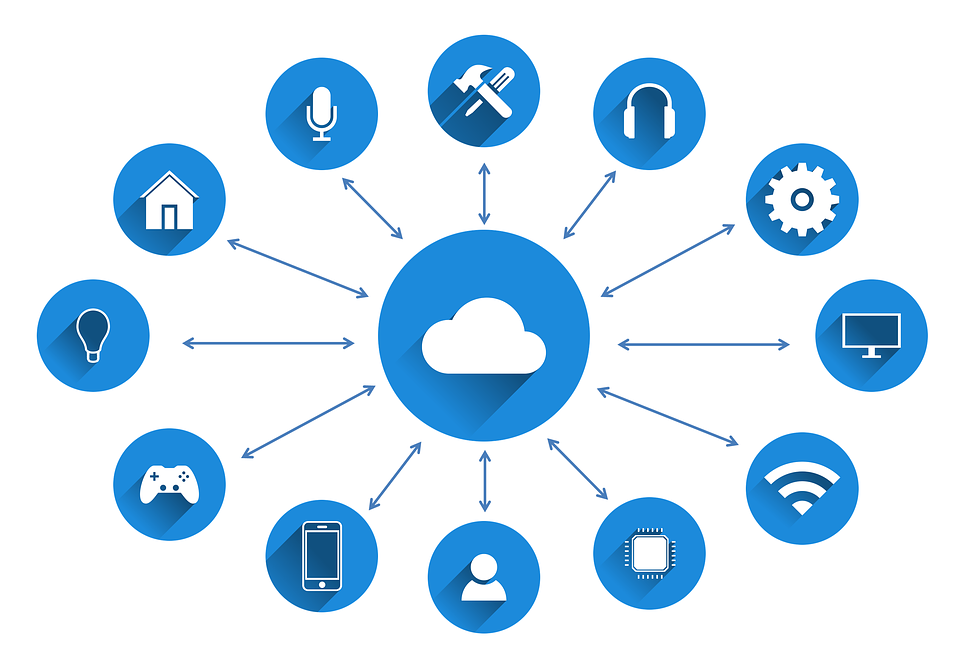While events are a great way to connect with your audience and push brand awareness, organizing and executing one can be an extremely tedious exercise. The event management domain has experienced a huge paradigm shift from an administrative perspective – what was largely a human-controlled ecosystem is now increasingly realizing and leveraging the benefits of software and AI in event management.
According to Forrester Research, CMOs admit to a colossal 24 % of their budgets going into live events. Imagine the tremendous cost efficiencies that can be brought into the frame by AI to pull down event spends. Let’s explore what event management software can do on this front and also in enhancing the overall value chain of event management.
☑ #1 Efficient Crowd & Logistics Management
From a security perspective as well as efficiency in crowd management, modern event management software tie in biometrics identification system and even face recognition that saves your event attendees from long queues, ticket management hassles as well as ensuring comprehensive security mechanisms.
It also helps from cost efficiency and environment-friendly attendee management perspective, as you minimizing the printing of tickets and booklets for crowd management.
AI can also help you plan your logistics better by ascertaining the area that has larger footfall and help your rejig your resources real-time for better crowd control and security management.
☑ #2 Linguistics & Translation
In order to get your event to penetrate uncharted audience demographics, event management applications leverage AI and extend into an instant translation of the event proceedings including the addresses of your key speakers.
Not only will this significantly minimize the scope for error, but it also is a lot more cost effective vis a vis human translators.
☑ #3 The Chatbot Magic
Any business leveraging chatbot on their digital collateral swear by this web-assistant tool. Think of how very beneficial a chatbot on your event website can be in areas such as registration assistance, FAQs, attendee reminders, merchant recommendations and a whole lot more.
Furthermore, an interactive chatbot can replace your human concierge at key locations in your event for attendees to ask directions, schedules, amenities, etc. Not only is this error-proof, but it also helps collect data on the key considerations your audience usually poses questions on.
☑ #4 Social Media Strategy
The idea of using event management apps and Artificial Intelligence with your event’s social media strategy is to create an ecosystem that interacts with browsers to bring them to your event page. This could involve throwing up relevant suggestions relating to your event based on their digital history or identifying relevant social forums where your event is likely to strike a chord.
What leading digital event management solutions are exploring is the relatively new concept of opinion mining. For the uninitiated, opinion mining refers to ascertaining whether or not any browser is likely to be interested in your event based on their social activities that include conversations, pages liked/followed, past even history on social media, etc.
☑ #5 Internal Control & Hierarchy Management
Most events in today age involve teams for designated activities with volunteers, trainees, managers and third-party specialists part of the mix. In such an event, it becomes difficult to establish responsibility and authority matrices, leading to accountability that may be difficult to pin down, should it be left to manage entirely through human intervention.
The same, however, can be streamlined to a large extent on a digital platform that clearly lists duties, responsibilities, and timelines for the same. It is also a lot more cost-effective to have all this information on a central interface rather than various scrolls of paper that makes introducing changes a big task.
☑ #6 Receivables & Payables Management
It is common knowledge that any event of even small or moderate expanse involves the services of various vendors, suppliers and other monetary engagements deeper into the value chain like sponsorships, stipends, proceeds from key showcases at the event, etc.
Managing all of this using a human web is inviting room for error. Engage in a comprehensive accounts management system associated with event management apps to iron out all monetary processes and make them streamlined. You can also assign key ownership to these activities and codes to unlock these modules on the app ensuring security protocols are kept in check.
☑ #7 Data Privacy
Protection of data is a key concern across various industries today. Whether it is data that is specific to the back-end logistics to your event or even data associated with attendees, speakers, sponsors, etc, managing and safeguarding such information is paramount.
Event management applications ensure a strong web of security measures are wrapped around critical information with the use of private accounts, security codes and management-only interfaces & entry points. On the flipside, there are higher chances of data breaches if the event that the entire data is collated and managed manually.
☑ #8 Data & Analytics
Every event you organize throws up a rich pool of data that when put through the scanner, can give you extremely interesting and useful insights on attendee demographics, costing, social media marketing, channels of ticket sales, the density of footfall across days and events among other such valuable information.
These inferences can be a guideline for your future events from a perspective of overall efficiency, cost optimization and targeted promotional activities.
Event management software doesn’t just make management a whole lot easier. It also empowers organizations to draw learning, data, and insights from past events. This not only drives event success in the future but also ensures you achieve targeted event objectives every single time.
Related Searches
- Top 10 Event Management Software for Nonprofits
- Streamlining Event Management with New Updates
- Building Enterprise-Grade Event Management Software
- Streamline Event Management with the Latest Updates
- Why Dryfta is the Ultimate Event Management Solution
- Got a University Event? An All-in-One Platform Saves Time and Money!
- Why You Need an All-In-One Event Management Platform
- Redefine your Event with an All-in-One Event Platform
- 10 Reasons to Use Event Management Software
- 4 Benefits of Cloud-Based Event Management Software
- Tips for Maintaining Professionalism in Event Management
- How Women Can Thrive in Event Management
- Are Event Management Apps Worth It? Benefits for Your Conference






